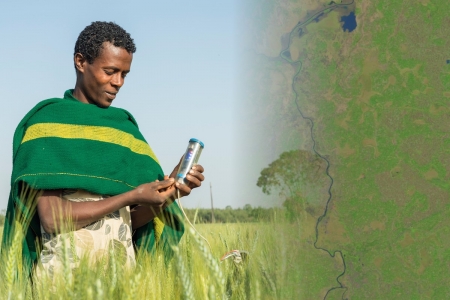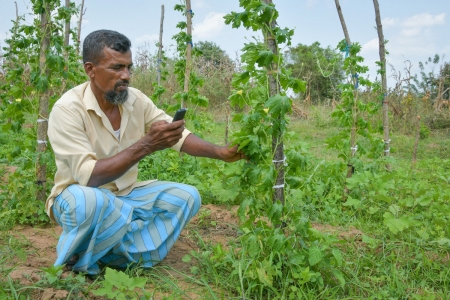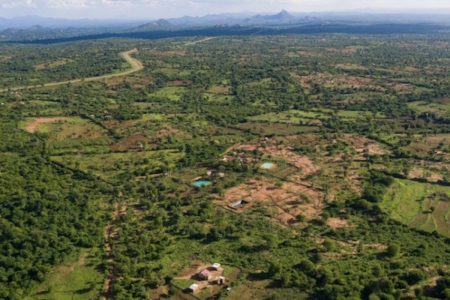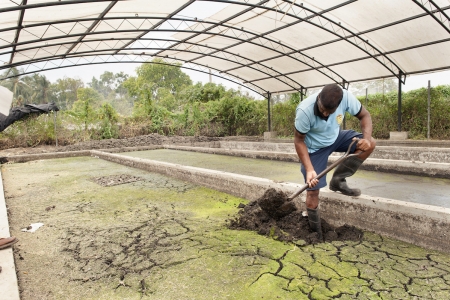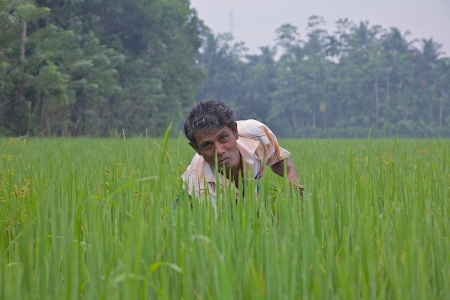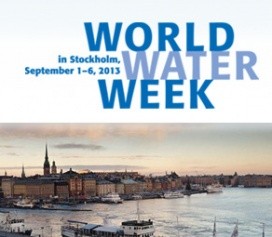 Water Cooperation: Building Partnerships - this year's theme at Stockholm World Water Week rings a chord with the CGIAR Research Program on Water, Land and Ecosystems (WLE). With 11 partners, strong partnership and collaboration is a vital component of the program.
Water Cooperation: Building Partnerships - this year's theme at Stockholm World Water Week rings a chord with the CGIAR Research Program on Water, Land and Ecosystems (WLE). With 11 partners, strong partnership and collaboration is a vital component of the program.
In March, the AgEco blog featured posts on water cooperation for the United Nations' 2013 International Year of Water Cooperation. See posts below:
Water is a source of Cooperation Not Conflict T. Clayton
Cooperation by water users: Does it work? A. Mukherji
Click here to view more about WLE's participation in World Water Week.
Stay tuned for more posts on this theme from this year's World Water Week. Come visit us at our booth shared with the International Water Management Institute.
Blog Posts:
Check back here for blog posts from the conference. We'll be promoting posts and live tweeting from the conference with #wwweek.
Wastewater reuse: benefits beyond food production
Luca di Mario and Pay Drechsel
Lima is one of the largest cities in the world located in a desert. Wastewater irrigation provides water and important nutrients to Huascar Park, contributing to a number of ecosystem services.
What's really causing water scarcity south of the Sahara?
Hua Xie and Claudia Ringler
In Africa south of the Sahara, where agriculture is predominantly rainfed, farmers’ access to water is limited based on time and space. But water scarcity in the region is not necessarily caused by a physical lack of water.
Agricultural biodiversity's contribution to ecosystem functions
Devra Jarvis
Scientific literature has dealt extensively with the relationship between diversity and ecosystem services in natural ecosystems, but the relationship between biodiversity and agricultural ecosystems remains under-researched. Chapter 9 of the recently published book “Managing Water and Agroecosystems for Food Security”, gives attention to the potential role of biological diversity in cultivated ecosystems.
The influence of the intergovernmental Mekong Basin Commission to manage the river is hobbled by its absence of the biggest and most upstream country on the river – China. This time we are in Africa, with Zambia the only country that hasn’t joined the commission.
Engaging audiences:
![]() This year we are grateful to have a team of students from the University of Pennsylvania's Masters of Environmental Studies Program blogging on sessions and presentations given by WLE scientists. Check here for a list of posts from students from the conference.
This year we are grateful to have a team of students from the University of Pennsylvania's Masters of Environmental Studies Program blogging on sessions and presentations given by WLE scientists. Check here for a list of posts from students from the conference.
Water, conflicts and power
By Sara Drexler
Throughout the river basins of the world, water management issues have been caused or exacerbated by instances of destructive conflict. Highlighting lessons from CPWF: collaboration will help mitigate water issues, but it must be grounded in science and involve multi-stakeholder engagement.
Replicating waste reuse success in new markets
By Lela Shimaka
Recovering water, nutrients, energy and organic matter provides an opportunity for closed-loop business models to both generate revenue and make valuable resources available for use. For example, the Resource Recovery and Reuse program is studying business models from around the world on reuse of organic matter in agriculture.



